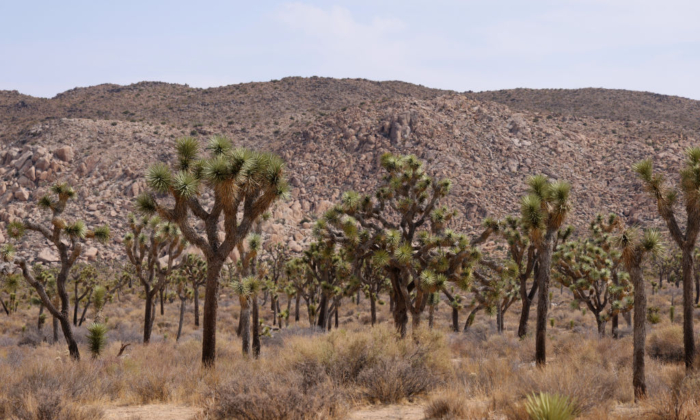Authorities have identified ongoing risks to Joshua trees from human activities, climate change, and wildland fires.
The California Department of Fish and Wildlife (CDFW) has released a draft conservation plan designed to safeguard the iconic Joshua trees in the face of persistent threats from wildfires and urban development.
The plan also urges all stakeholders, including government entities, businesses, and individuals, to reduce greenhouse gas emissions to mitigate the impact of climate change on the species. It calls for landowners, developers, and land managers to limit the area of Joshua tree habitat affected by their operations.
Furthermore, the plan stresses the importance of actively combating and containing wildfires in or near Western Joshua tree habitats and implementing measures to mitigate the effects of fires on rehabilitated areas.
In 2019, the Center for Biological Diversity petitioned to have the western Joshua tree listed as a threatened species under California’s Endangered Species Act.
Brendan Cummings, the center’s conservation director, commended the comprehensive nature of the plan, stating, “Assuming we can adhere to a moderate emissions trajectory, we stand a good chance of preserving the species if the outlined measures are implemented.”
The act mandated the creation of a conservation plan through collaboration with governmental agencies, California Native American tribes, and the public. It also prohibited the unauthorized removal or destruction of western Joshua trees and required CDFW to submit an annual report on the species’ conservation status to the California Fish and Game Commission.
CDFW aims to identify priority conservation areas by December 2025 and safeguard 70% of these regions by 2033.
The species plays a vital role in California’s desert ecosystem, providing habitat for various wildlife. Additionally, it holds cultural significance for many tribes, with projections suggesting that much of its range may become unsuitable habitat by the end of the century.
Human activities, climate change, and wildfires are the primary threats to the species, according to CDFW.
The agency’s draft plan highlights the need for proactive conservation efforts and strategic land management to ensure the survival and growth of the western Joshua tree population in California.
The finalized plan will require approval from the California Fish and Game Commission.
This article includes contributions from The Associated Press.






